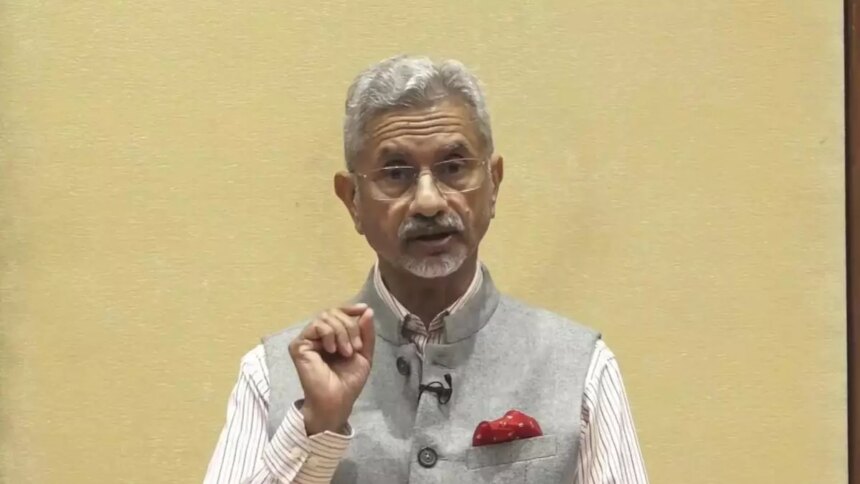External Affairs Minister S. Jaishankar emphasized that India will never allow outside influences to dictate its decisions. He stated that the nation will pursue actions aligned with its national interests and the global good, free from intimidation to conform to others’ expectations.
In a video message for an event in Mumbai on Saturday, he noted that as India becomes more prominent in global awareness, its impact will be significant. In a world challenged by unhealthy lifestyles, high stress, and recurring climate change, there is much the world can learn from India’s rich heritage. However, for this wisdom to be recognized, citizens must take pride in their cultural roots, he emphasized.
Jaishankar highlighted the necessity of harmonizing technology with tradition in today’s globalized world. He remarked, “India is bound to progress, but it must do so while preserving its unique identity. Only then can we truly emerge as a leading force in a multipolar world.”
During the same event, Jaishankar was honored with the 27th SIES Sri Chandrasekarendra Saraswati National Eminence Award, which recognizes excellence in various fields such as Public Leadership, Community Leadership, Human Endeavour, Science and Technology, and Social Leadership, with a special focus on spiritualism. The awards are named after the esteemed 68th Seer of Kanchi Kamakoti Peetam, Sri Chandrasekarendra Saraswathi.
While he was unable to attend the event in person, Jaishankar conveyed his thoughts through a video message. He stated, “Independence should not be mistaken for neutrality. We will act in our national interest and for the global good without succumbing to pressure for conformity. India will not grant others a veto over its choices.”
He further remarked that for too long, progress and modernity have been perceived as dismissive of India’s heritage and traditions. This notion, he suggested, may stem from an inclination towards foreign models or discomfort with indigenous practices. However, as democracy has evolved, more authentic voices are emerging within the country, allowing it to reconnect with its true identity.
Jaishankar described India as a unique nation, a civilization-state, asserting that such a country can only exert true influence when it fully utilizes its cultural strengths in the global landscape. He stressed the importance of the younger generation being aware of their heritage’s value and significance, emphasizing that this understanding should resonate at a societal level.
He noted that India currently stands at a pivotal point. The past decade has revealed the nation’s capabilities, confidence, and unwavering commitment to advancing development across diverse sectors. It has demonstrated that long-standing issues such as poverty, discrimination, and lack of opportunities can indeed be addressed. On the global stage, India has established itself as an independent power dedicated to the global good, particularly concerning the welfare of the Global South.
At the same time, however, Jaishankar acknowledged that the constraints and challenges that have hindered progress for too long continue to exist. He expressed concern regarding the prevalence of pessimistic viewpoints and ideologies that undermine India’s potential and identity.










